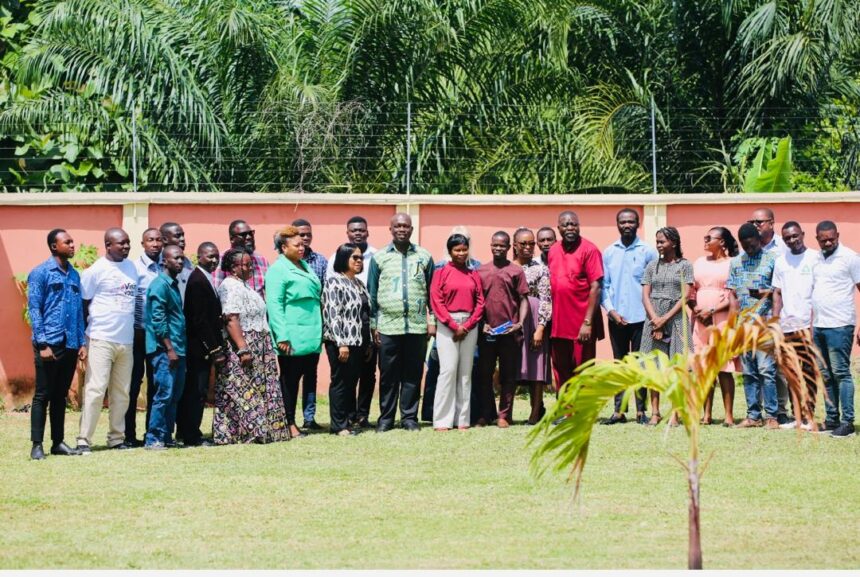Hohoe, Volta Region — The University of Health and Allied Sciences (UHAS), through its Fred N. Binka School of Public Health, has launched a comprehensive training program to empower journalists from the Volta and Oti regions with knowledge and tools to advance food and nutrition education in Ghana.
The two-day workshop, held in Hohoe, forms part of the UHAS-Nkabom Mastercard Foundation Project and aims to strengthen media capacity in reporting on critical issues such as nutrition, agribusiness, public health, and youth entrepreneurship. The initiative is funded by the Mastercard Foundation and implemented in collaboration with academic and development partners including Kwame Nkrumah University of Science and Technology (KNUST), Ashesi University, the Association of Ghana Industries (AGI), and the University of Professional Studies, Accra (UPSA).
Speaking at the opening ceremony, Prof. Frank Baiden, Dean of the Fred N. Binka School of Public Health and Principal Investigator of the UHAS-Nkabom Project, urged journalists to leverage their platforms to prioritize reporting on nutrition and food security.
“This training is designed not just to inform, but to empower journalists to become advocates for healthier food systems, improved nutrition, and sustainable livelihoods,” Prof. Baiden said. “We are also spotlighting how academic institutions like UHAS are integrating entrepreneurship and innovation into public health education.”
Participants pledged to use their platforms to increase public awareness of food and nutrition-related issues across their regions and beyond.
Ms. Roseline Ashibui, one of the facilitators, emphasized the importance of youth entrepreneurship and encouraged journalists to explore income-generating opportunities beyond traditional roles to foster self-sufficiency. She highlighted ongoing initiatives at UHAS that are nurturing student entrepreneurs who are already creating meaningful impact in their communities.
Mr. Selorm Odjo Anyomi, another speaker, introduced participants to climate-smart agriculture and demonstrated the benefits of backyard farming as a sustainable alternative to chemically treated foods. He explained that growing one’s own food not only promotes healthier lifestyles but also reduces dependence on agrochemical-laden produce from markets.
The training is expected to spark a new wave of media-led advocacy focused on food systems, health, and sustainable development in Ghana. Through initiatives like these, UHAS continues to bridge the gap between academia, media, and community development.
Story by Christian Ahodie – Atinka/Bullet Online






